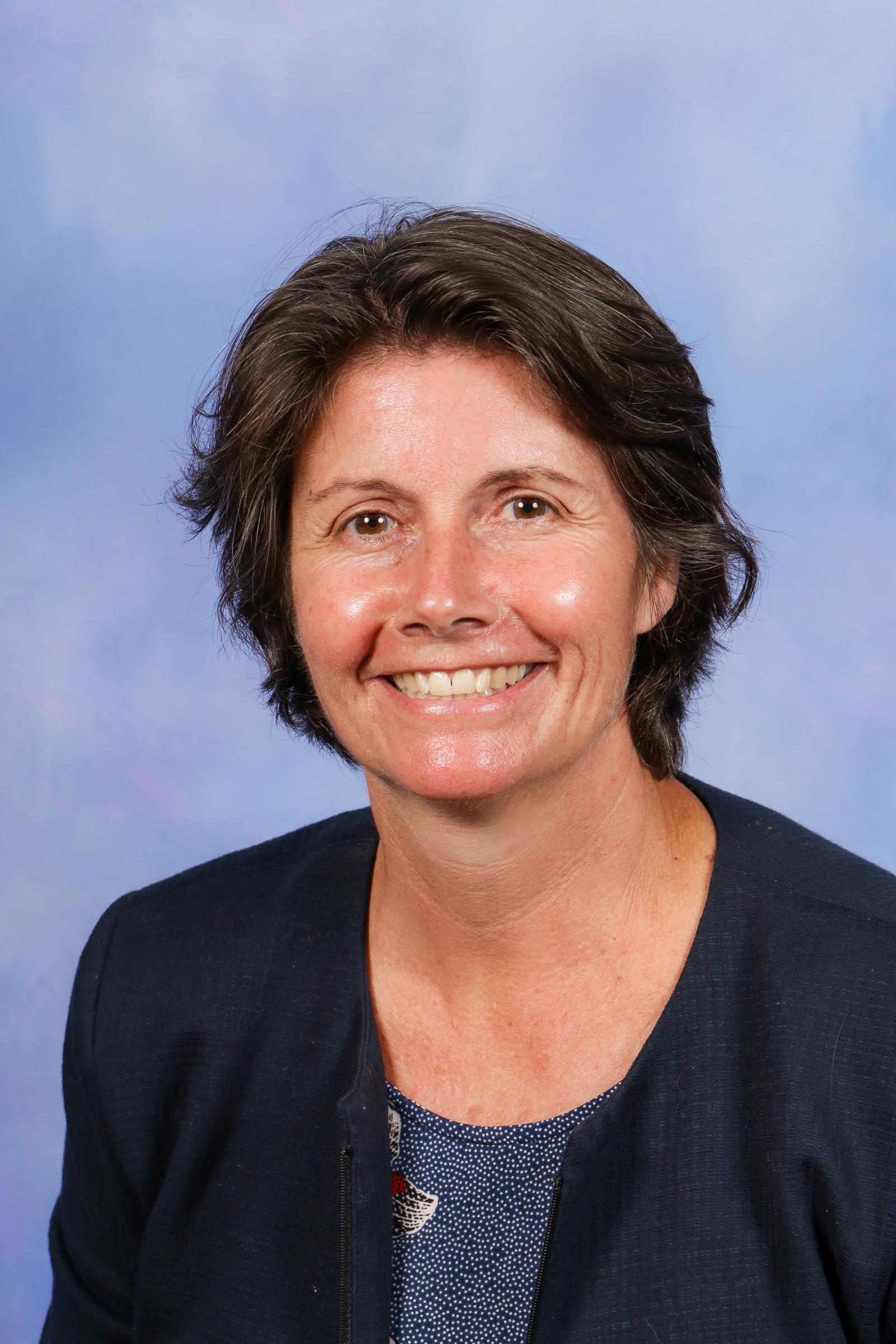Principal

REFLECTION
The month of August has given Catholics and Lasallian schools some significant events for reflection.
August 8 was the Feast of our Australian Saint, Mary MacKillop. Our Saint who took up the challenge of supporting those facing poverty and helplessness in her time.
August 12 was the Feast St Benildus, the Lasallian Brother, who “did ordinary things, extraordinarily well”, and whose encouragement of others to give their lives to God had him made the Patron Saint of Vocations.
August 15 was the Feast of the Assumption of the Blessed Virgin Mary. The Feast of the Assumption is a very special day in the Catholic calendar; in the Western church this feast celebrates the assumption of Mary into heaven, and in the East it commemorates her dormition or her falling asleep. Mary is a woman who made a very strong choice for God in her life, whose vocation, like ours, was to bring Christ to the world. Over the centuries, devotion to Mary has been expressed in forms taken from the culture out of which it developed. Sometimes she is pictured as a humble peasant girl. At other times, she is depicted as a queen robed in gold who rules from heaven. Probably the most familiar pose is that of a mother with her child. Perhaps the most dramatic of these themes is that of the celestial woman from the vision found in the Book of Revelation. The greatness of Mary is a reflection of the greatness of the Son of God whom she bore. He was the first fruits of salvation. He was the victor who won the kingdom. Her part in this victory was to bring Him to birth and into maturity.
At around the time of these Feast Days we were also marking Homelessness Week, one of the most significant social problems of our times; quite visible in our city streets, but also a serious and hidden issue in our suburbs and regional areas. I offer you the following reflection by Fr Andrew Hamilton from Jesuit Social Services.
"Once to have a home was seen as a right. Now it is seen as a privilege. The price of houses has risen enormously. Renting has also become more expensive. In rural areas to which many people have moved during the Covid Epidemic, local people are often priced out of the housing market. More people are forced to sleep in their cars and on the streets. At the same time, however, the houses left unoccupied are sufficient to provide accommodation for all who lack it.
The reasons why it is so hard to find a place in which to live are many. They include a change in attitude towards buying houses from looking at housing as shelter to seeing it as an investment to increase wealth. This encourages people to take out heavy loans to buy houses, which in turn raises prices. In the meantime, governments that once took responsibility for housing people with little or no income have stopped building new houses or have sold existing stock. When immigration resumes, we can expect even greater pressure on shelter and on rental prices.
It is easy to treat this situation as inevitable, particularly if we own our own houses. For that reason, it is important to reflect on why housing is important and to imagine what we lose of ourselves when we have no place in which to live. In homelessness week many events help us to do this. The Vinnies sleep-outs in which many people prominent in public life listen to homeless people tell their stories and then sleep on the floor themselves have touched the imagination of those who take part. The sight of people sleeping on the city streets on a cold winter night has also evoked empathy and generosity.
These short and voluntary experiences of homelessness, however, show only part what it means to have nowhere to live. To be homeless cuts connections. If you have no fixed address, you will miss mail, will find it hard to have things delivered, to have friends and family visit you, and to access government services. You will move often from place to place; your children will change schools, miss friends and experience only passing relationships. Even connections with the internet will become more difficult and expensive. With no kitchen, food will be expensive; with no laundry or bathroom it will be hard to maintain hygiene and clean clothing.
Many of the people, disadvantaged in many ways, whom we accompany at Jesuit Social Services see secure housing as their major need. Insecurity contributes to mental illness and withdrawal from society.
That is why in Catholic Social Teaching stable shelter is seen as a human right. In a modern society, stable accommodation is necessary if we are to live fully as human beings with our dignity respected. Without it we shrink as persons, we lose touch with friends and family, and the connections with society that are central to our lives become precarious.
In our highly developed society, we should demand of our governments that they take responsibility for shaping an economy that will allow people to buy or rent housing, and provide social housing for those who cannot afford it."
People experiencing homelessness are not a stereotype; they are parents, grandparents, children and those rejected by their families and support networks. Homelessness also takes on different forms. Some people do sleep rough, while many people experiencing homelessness couch surf and have accommodation for short periods, or use their car as their home; for many families this is what homelessness looks like.
Each of these people are valued and loved by God. Our role in society, and as Lasallians, is to advocate for the disadvantaged and seek to support those at the margins. Our Church, through local parishes, serves with a small number of St Vincent de Paul (Vinnies) members who provide so much in our suburbs to those in need. We should take up opportunities to support the work of organisations such as Vinnies.
St Bede's College Board
We welcome Keiren Tilbrook as the incoming Chair of the Board. Keiren has been a member of the College Board since the beginning of 2021 and has represented the Board on the Risk and Compliance Committee since 2016. Keiren is a long time resident of the Bayside area and has four sons, two of whom attended St Bede’s College. Keiren has worked in the ICT industry for most of his working life, with a recent focus on business analysis and strategic planning. Keiren’s professional skills and experience have brought an invaluable contribution to the College’s governance. He is strategically focused while being very process driven and intent on ensuring meetings and Committees deliver the required results. I look forward to working with Keiren as the new Chair of St Bede’s College.
It is my pleasure to introduce the new Directors of the College Board as follows:
Rebecca Kotow
Rebecca is a highly motivated Executive who thrives on turning strategy into deliverable outcomes. She achieves this through her leadership and care of others and her ability to engage and influence well. What Rebecca consistently brings to the table is a deep understanding, and demonstration of, team leadership, financial acumen, change management and communications. She is currently the Head of Operations of Community Hubs Australia.
Rebecca's son Riley attends St Bede's College and she is a regular volunteer at our College Canteen.
Allison Tippett
After completing a Bachelor of Science at Melbourne University, Allison graduated with a Bachelor of Science (Organic Chemistry) with Honours from Deakin University. Allison has worked with GSK for over 23 years and is currently the Site Value Stream (Manufacturing) Director. She is highly experienced in change management and performance driven quality culture across the organisation. Allison is highly organized and systems orientated with strong verbal and written communication skills.
Allison loves to read and is a long-distance runner. Her son Rex attends St Bede's College and is currently undertaking VCE.
Tim Honey
Tim was admitted as a Barrister and Solicitor of the Supreme Court of Victoria in October 1991. He has 10 years of experience as a Senior manger of a national in-house litigation practice focussed on enforcing workplace relations laws. Tim is a highly experienced litigator specialising in civil and civil penalty litigations, often involving urgent injunctive relief. Tim is the current Chair of the Committee of the Government Lawyers Section of the Law Institute of Victoria and has been part of that committee since 2016.
Tim’s sons both attend St Bede’s College and Tim is also involved with the St Bede’s College Old Collegians Association, having attended the College himself.
John Csorgo
With over 25 years as a consultant, John has extensive experience in implementing solutions for a variety of organisations. His professional experience within large scale public utilities organisations, local and State Government and major private enterprises spans over 15 years.
John is Chair of Outer East Foodshare and has been a member of the St Bede’s College Board Risk Committee since 2019. John is a St Bede’s College Old Collegian.
R U OK? and Wear It Purple Day
Our student leaders, alongside a number of staff, have been promoting the upcoming R U OK? Day and Wear It Purple Day within our St Bede’s Community. Below is some further information taken from the respective websites:
R U OK? is a harm prevention charity that encourages people to stay connected and have conversations that can help others through difficult times in their lives. Their work focuses on building the motivation, confidence and skills of the help-giver – the person who can have a meaningful conversation with someone who is struggling with life.
R U OK? contributes to suicide prevention efforts by encouraging people to invest more time in their personal relationships and building the capacity of informal support networks - friends, family and colleagues - to be alert to those around them, have a conversation if they identify signs of distress or difficulty and connect someone to appropriate support, long before they're in crisis.
Wear it Purple was founded in 2010 in response to global stories of real teenagers and their real responses. In 2010, several LGBTQIA+ young people took their own lives following bullying and harassment resulting from the lack of acceptance of their sexuality or gender identity.
As the world saw the faces of precious young lives lost, some young people found a new sense of conviction and purpose to ensure that young people everywhere would know that there were people who did support and love them. Wear it Purple was established to show young people across the globe that there was hope, that there were people who did support and accept them, and that they have the right to be proud of who they are.
Per Vias Rectas
Deb Frizza
Principal
